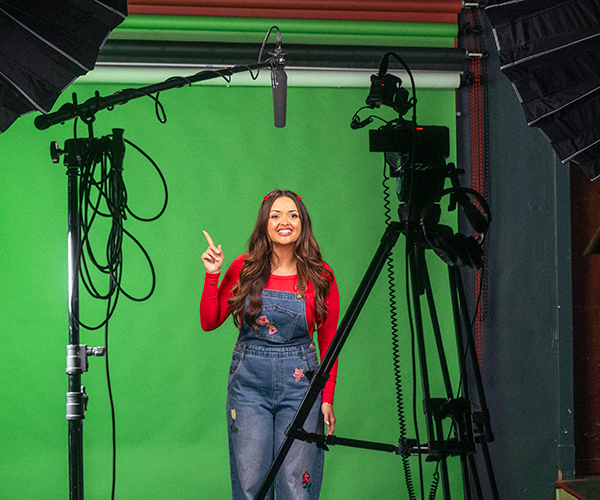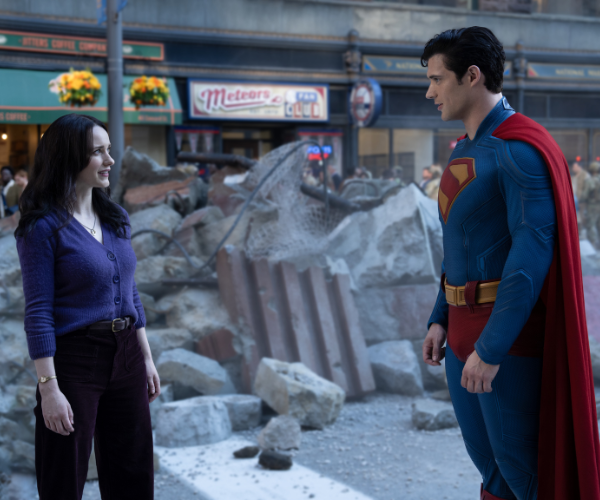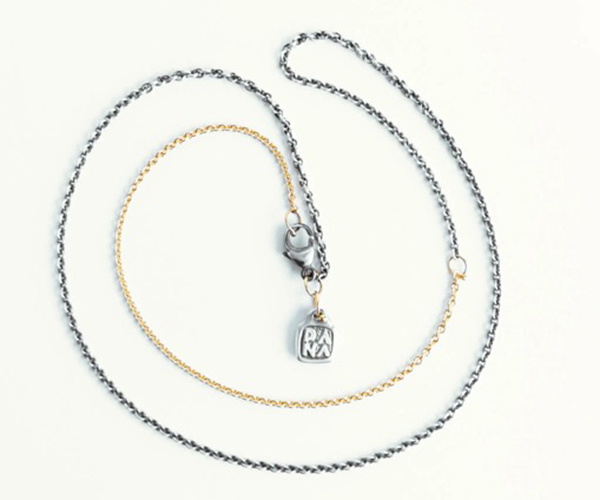Betty White looks like a benevolent queen surrounded by her court.
Wearing a soft sweater and, as always, bright pink lipstick, she's sitting square in the middle of a long U-shaped table. She's flanked on either side by her Hot in Cleveland co-stars and, beyond them, by guest stars Bonnie Franklin from One Day at a Time, John Schneider from The Dukes of Hazzard and Wayne Knight from Seinfeld.
It's a sunny Monday morning on Gunsmoke Lane in Studio City, Calif., and show producers, writers and crew members fill the room to watch the read-through of the sophomore comedy's third episode.
White's character, Elka, is turning to wine to cope with a problem in her love life that we won't give away.
"I'm stink faced," she reads, and the room rolls with the special kind of Hollywood laughter reserved for hit shows. This is what success feels like.
Oh, we know, this is only its second season — on TV Land, no less, a network built on reruns. And, sure, we initially had our doubts. Anyone with any history in our town — the real Cleveland — would.
The entire premise of Hot in Cleveland is built on what sounds like the start of a pretty ugly joke: Three fabulous women from LA walk into a bar on Euclid Avenue. Upon seeing people like us there, they feel 10 years younger and 10 pounds lighter. And that's why, after an order of fries, they decide to stay in Cleveland.
So you'll understand why we didn't grab hold of White and her pals Valerie Bertinelli, Jane Leeves and Wendie Malick like a big bag of Snickers when the show premiered in June. Even if we had initially loved the show's premise, you've seen what happens in Cleveland when we get our pedestals out, right? Someone fumbles. Or gets indicted. Or goes to Miami.
Then something inexplicable happened: Nearly 5 million people watched the show's premiere. That's more than double the Mad Men and Entourage season openers this year. We watched, too, ready to pounce. Instead, we chuckled — not the inane guffaws of the live studio audience. But, yes, we laughed.
Those same millions tuned in for the next episode. And for the one after that. The Betty White fever spread. Just three episodes into the first season, the show was picked up for a 20-episode second season.
And that's how we ended up here, in the back corner of the room, watching White and the Hot in Cleveland girls.
The read-through ends, and because this is the one day of the week when White has a stand-in for the actual rehearsal, her Hot in Cleveland golf cart is waiting to whisk her away.
She's about to leave when we're brought to White's side and introduced as a part of the team from Cleveland Magazine that will be spending the next few days interviewing and photographing her.
White stands up, extends her hand and speaks in that gullible, cheerful voice that seems so inherently Midwestern though she left Illinois when still a toddler. "Boy," she says, looking us in the eye and pausing for effect, "I'm beginning to feel like I really am in Cleveland."
White perfected the delivery of lines like this decades ago on The Mary Tyler Moore Show and The Golden Girls. Bertinelli began acting at age 15 as Barbara Cooper on One Day at a Time. Leeves won laughs as Daphne Moon on Frasier from 1993 to 2004, and Malick won several Emmy nominations as Nina Van Horn on Just Shoot Me!
And yet, none of the women were in high demand in Hollywood five years ago. The kind of show that made them famous — traditional multicamera comedies shot in front of studio audiences — was said to be dead, replaced by more contemporary single-camera shows such as Modern Family and 30 Rock.
Nothing about the show is new. It's not edgy. It's not groundbreaking. It's not intellectual. "Comfort food" is how Hot in Cleveland executive producer Todd Milliner describes the show while sitting in his studio office, across the street from the soundstage.
"I kind of feel good at night when I go home and watch a couple of episodes of Cheers," he says. "I'm hoping that people will feel good when they watch an episode of Hot in Cleveland. Life is depressing enough. I like the release of the show."
Apparently, lots of people do. TV Land's goal was to draw close to one million viewers with the first episode. Bertinelli was on a plane with her fiance, Tom Vitale, when the ratings were announced.
"We didn't hear the numbers till we landed," she says. "My iPhone started going crazy. When I saw 4.8 million, I looked at Tom and I started crying. I knew that all people had to do was see the pilot and they were going to love the show, but those numbers are unheard of."
Frasier writer Suzanne Martin created the show. When The Golden Girls' Estelle Getty died, Martin found herself watching the tributes and wondering, Why isn't there a show like that anymore.
She came up with the idea for Hot in Cleveland and took it to TV Land, which was looking to add original programming to its lineup. Martin, a petite blonde, is also responsible for the funniest lines of season one: "No matter how big you are in Cleveland, everybody seems to think they can pull off wearing shorts."
The thing is, Martin came up with the zinger while in Orlando. It's the one joke she worried was "crossing the line" with us. The reality, though, is that it's not just in Cleveland, or Orlando, that overweight people wear shorts. "Guess what?" Milliner says. "People do it everywhere."
Why us then?
"The ring of Cleveland is so good," Milliner says. "We talked about it. Hot in Detroit doesn't sound as good."
Milliner also says the joke is as much on LA — if not more so — than on us. "We all know how ridiculous it can be out here at times," says Milliner, a Chicago native who later debates with his co-workers over the last time he ate a chicken wing. "We are really honestly poking fun at ourselves."
The real theme of the show, he adds, is reinvention.
"I want to believe that you can start over at 40," Milliner says. "Hit reset on your life and have a whole new chapter that doesn't have to have anything to do with the first 40 years. There's something so lovely about this notion of getting three of your friends and starting again in a nice, big house in Cleveland."
"People get to 40 or 45 and feel like they're done," Martin adds. "You want to feel like you could shake it up again."
That's definitely a concept that we as an aging city trying to forge a new way can embrace.
Clevelander Neil Mohney, who has become the city's unofficial liaison to the show, has visited the set twice. He says people who snarl at the show's jokes are missing the point, which is that Melanie, Joy and Victoria decided to stay in Cleveland because they liked it here. Mohney, an executive coordinator for Forest City Enterprises, says we should embrace the show. "This is an opportunity for Cleveland to sort of ride on the show's coattails and rebrand ourselves," he says.
When The Drew Carey Show was at its peak, Cleveland did nothing to promote it, Mohney says. Boston offered Cheers tours. Sex and the City has spawned a whole industry in New York. He doesn't want Cleveland to miss out again. Backed by Forest City Enterprises, Mohney was at press time trying to bring the show's stars to Cleveland to kick off the show's second season.
Back on the set, an assistant tells me it's time to meet with White. She's in her dressing room and has some time before her hair and makeup need to be done for an event tonight. The room is empty, except for White, an almost-89-year-old who is nearing the end of her 10-hour day.
She talks for a while about the early days in Hollywood and how entranced the audience was. "Back in those days, television was still a miracle," she says. "Now the audience has seen every joke, every storyline."
Hot in Cleveland, she adds, is "a good old-fashioned situation comedy. We're not trying to prove anything."
The Golden Girls was successful, White says, because of the relationship between the four women. "Oh, we adored each other," she says. "You can't work that closely and not become a family."
An assistant knocks on her door, trying to wrap up the interview, but she asks for a minute to keep talking.
White's current cast has that same family dynamic. "The chemistry is just magic," she says. "It's a thing you can't buy. We all happen to love each other, and it shows."
It's dark out as we step onto Gunsmoke Lane, which — in Hollywood at least — is across the street from Stormi's on Euclid, the fictitious Cleveland bar where much of the show is shot. There's a party tonight. Drinks and appetizers are being served at Stormi's, and we're invited to attend.
The bar is all dark wood and cozy booths. There are cafe curtains and white tablecloths. Plastic ketchup bottles sit on the tables along with metal napkin dispensers. Food is served in baskets. The men here are so Midwestern friendly that they stand up when the LA ladies come to the table. It is, frankly, a little more Cleveland than we are.
Is this the way they will always portray us? More Otto Moser than Michael Symon? More old Euclid Avenue than new East Fourth Street?
As the party ends, we step out of Stormi's onto Gunsmoke and leave fake Cleveland behind. Maybe the show will never get us quite right. Maybe focusing on our flaws is simply funnier. This is, after all, a comedy.
Here's another thing the show gets wrong: The fictional Clevelanders seem unequivocally proud of their city, with no sign at all of the civic inferiority complex that we, in reality, have been festering for years.
Maybe, as part of our reinvention, we can learn to take a joke.



